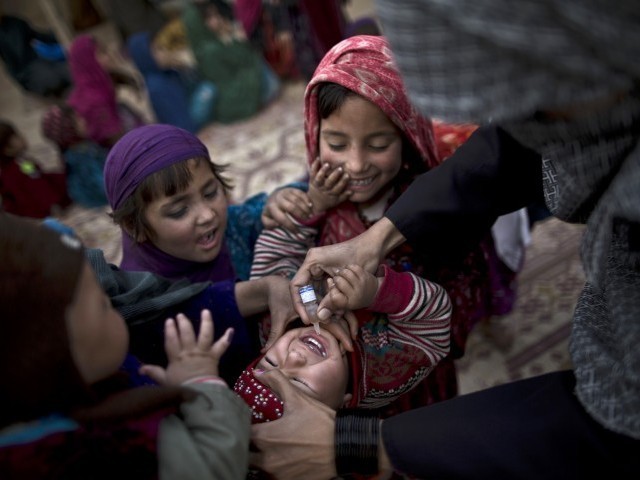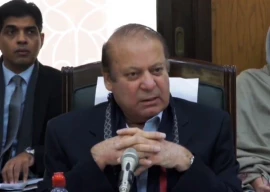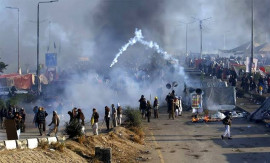
PESHAWAR: The 2,250-kilometre-long border between Pakistan and Afghanistan remains a global security concern as both countries continue to control the movement of militants across the border. The international health community has its own set of concerns as while the porous border is considered a ‘hub’ for militants where United States and its allies have carried out military operations, it is also seen as a transmission hub for the crippling poliovirus. While Pakistan and Afghanistan loudly point fingers at each other over acts of terror, blame is also assigned albeit less loudly over the cross-border transmission of poliovirus.
Another cross-border initiative
After an emergency committee, under International Health Regulation (IHR) 2005, met in February to discuss international spread of poliovirus, World Health Organization (WHO) issued a statement on March 2 claiming, “The movement of people across the border between Pakistan and Afghanistan continues to facilitate exportation of wild poliovirus.”
Pakistan may be polio free by next year: UNICEF health official
It added both countries should intensify cross-border efforts by significantly improving coordination at national, regional and local levels to substantially increase vaccination coverage of travellers crossing the border as well as of high risk cross-border populations.
Passing the buck
The IHR committee, at the recent meeting, re-emphasised the spread of poliovirus was not confined to Pakistan and Afghanistan and could—again—easily spread globally. It noted the international spread of poliovirus had not been eliminated, with two recent reports of exportations from Pakistan into Afghanistan – in Nangarhar and Kunar provinces. It added no reports of exportation from Afghanistan into Pakistan had emerged.
However, this contradicted a statement made by a UN official on Wednesday who claimed the virus was travelling from Afghanistan into Pakistan.
“We carry out thorough research and trace links of transmission of the virus following genetic sequences. We have solid evidence the two recent cases confirmed from Hangu and Nowshera [in 2016] were transmitted from Afghanistan,” he said.
The official, requesting anonymity, told The Express Tribune, “Carriers from Pakistan had transmitted the virus to Afghanistan but at the same time, carriers from Afghanistan also transmit polio to Pakistan via frequented and unfrequented routes.” He added, “This is how things occur between neighbouring countries.”
He said the border between the two countries has become a transmission corridor with Afghan province of Nangarhar, Khyber Agency in Pakistan’s tribal areas and Khyber-Pakhtunkhwa’s capital, Peshawar, serving as reservoirs for the disease.
Towards resolution
The official said frequented routes were being monitored and polio drops were being administered to all those crossing the border. He added monitoring organisations also emphasised on focusing on areas like Khyber Agency, Mardan, Peshawar, Nowshera and Chitral.
Crippling disease: ‘Pakistan still has polio virus sanctuaries’
According to the WHO statement (which can be found on its website), despite monitoring movement and administering drops, border crossings still pose a serious threat for the transmission of poliovirus.
“While border vaccination is limited to children under ten years of age, efforts are being made to vaccinate departing travellers belonging to all age groups,” the committee acknowledged.
Published in The Express Tribune, March 4th, 2016.






































COMMENTS
Comments are moderated and generally will be posted if they are on-topic and not abusive.
For more information, please see our Comments FAQ